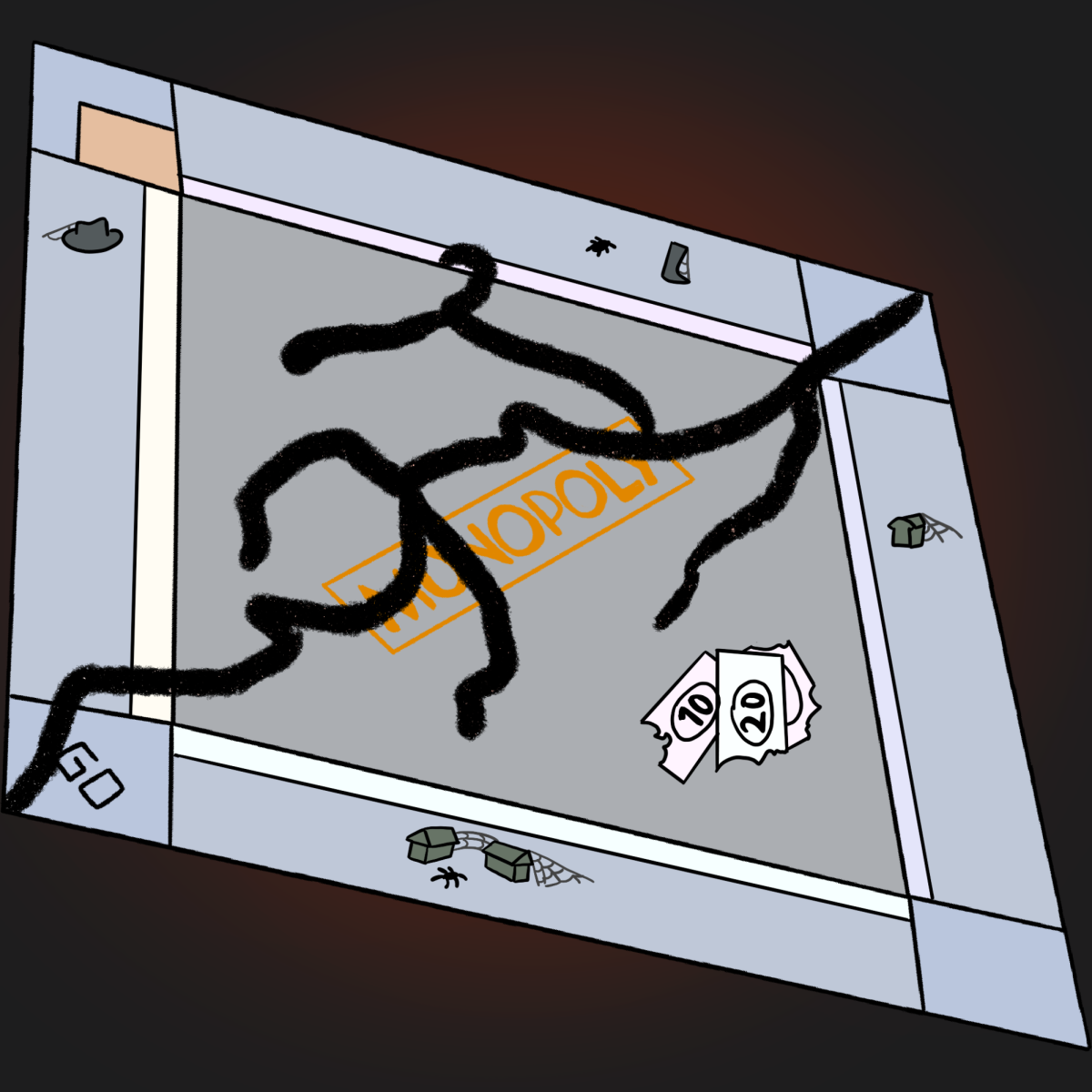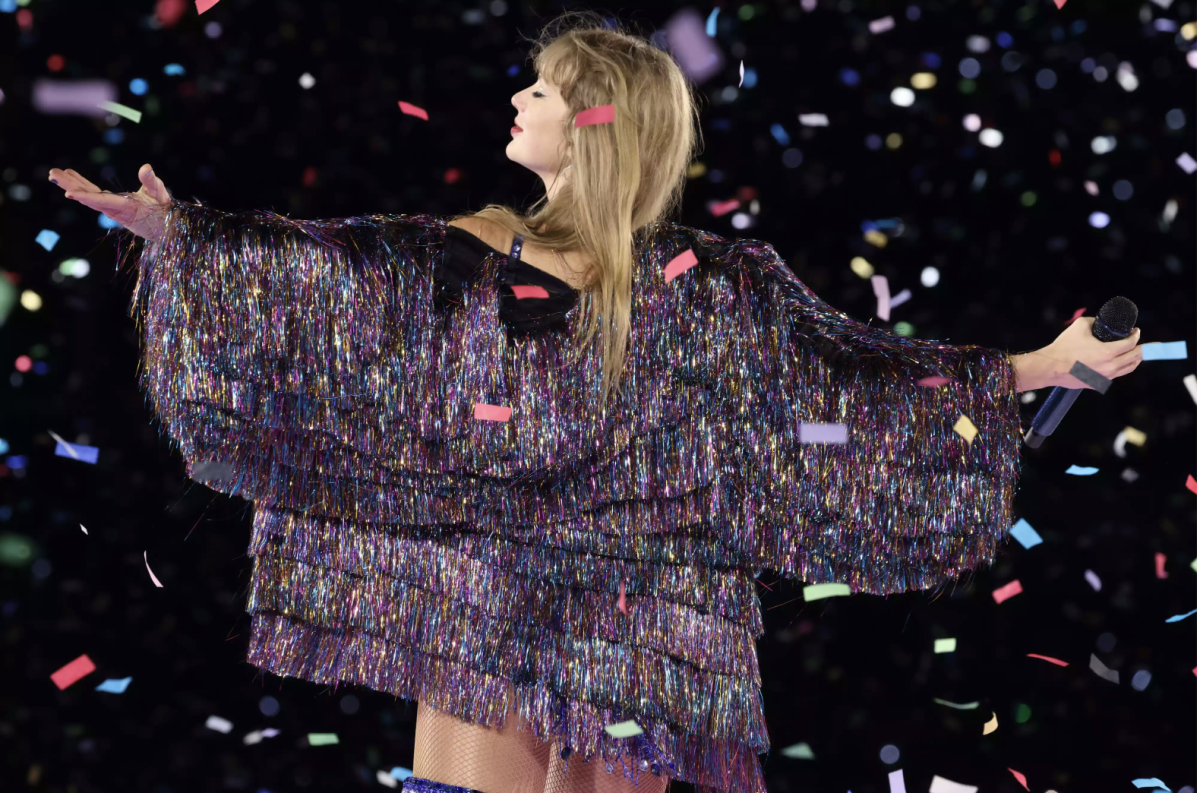“Won’t you let an innocent woman be?” – Sabrina Carpenter, “Manchild.”
Although it was written much earlier, the lyrics of “Man’s Best Friend’s” lead single served as a prophecy of the controversy that was to come. When Sabrina Carpenter released the cover of her newest album, fans and haters alike began a wave of backlash that took over the internet, forcing her to eventually release less controversial alternate covers that were “approved by God.” At first glance, the reason for this outrage was obvious: Carpenter was posed in a visibly degrading position, on her hands and knees, for a man who was grabbing her hair and restricting her movement. Who would support the portrayal of women in such a humiliating position?
But the idea that Carpenter is “setting women back hundreds of years” with this artistic choice gives her much less credit than she deserves. The image isn’t romanticizing the abuse and degradation of women, but rather, it’s reclaiming the power that men have taken away from Carpenter in the past. Portraying herself in that position takes back control of the narrative that women like her are nothing more than pets without autonomy, or “man’s best friend,” because it gives her creative command over how she is perceived. It’s a perfect fit for an album full of songs that poke fun at how men have mistreated Carpenter in the past.
Carpenter commented on it herself shortly after the album was released: “My interpretation is being in on the control, being in on your lack of control, and when you want to be in control.” In a later interview, she added, “I’m clearly in control even though I’m on all fours.”
The fact that Carpenter isn’t depicting women as objects to be manhandled by men should have been obvious from the beginning. The album’s lead single is called “Manchild.” Her previous album, “Short n’ Sweet,” dedicated several songs to lamenting the thoughtless nature of men. Not to mention, she has viscerally murdered men in her music videos. Several times. Across several albums. The notion that Carpenter would spend years building her brand around being fed up with men and then turn around to depict herself as their object is condescending, insulting and underestimates women’s intelligence to an extent that circles back around to becoming misogynistic itself.
This is a phenomenon I’ve coined as “misogyny-ception”: Many of the hard-fought arguments against women’s “misogynistic” behavior (which usually just chalk up to having confidence) are actually misogynistic in their own manner.
Misogyny-ception isn’t something that Carpenter — or any woman in the music industry, for that matter — is unfamiliar with. Throughout her “Short n’ Sweet” tour, Carpenter faced backlash for failing to be a feminist role model. Whether it was criticism against her scandalous outfits or disgust at the fact that many of her songs center on suggestive topics, much of the public seemed to think that by building her brand around sexuality, Carpenter was reducing women to sexual objects.
Yet, this mindset is rooted in the belief that women’s sexuality is something that they should be ashamed of, and shying away from it through modesty is the only way to be taken seriously. Since the time of Freud, women have been labeled as either sexual or respectable — but never capable of being both. It’s a belief that puts women in yet another box and takes control out of their hands under the false label of liberation.
Women in the industry beyond Carpenter herself have been shamed for similar reasons. Recently, Olivia Rodrigo was under scrutiny for the drastic change in the style of her concert outfits between her debut “SOUR” tour and the recent “GUTS” world tour, with former fans saying her more revealing attire meant she “sold her soul” for fame. Not to mention, Taylor Swift received accusations of failing her female fanbase by “only singing about men.” And this phenomenon is not just a product of our time. Even back in the 1980s, Madonna faced backlash for releasing “Papa Don’t Preach,” a song allegedly glorifying teen pregnancy, at a time when women were fighting to secure abortion rights.
The common thread between all these controversies? Grown women having the audacity to express themselves and their bodies on their own terms. Instead of collectively bashing women for taking control over their autonomy after years of lacking that power, spend that energy fighting against the misogynistic institutions that make that lack of control so prevalent. And in the words of Sabrina Carpenter herself, let innocent women be.












